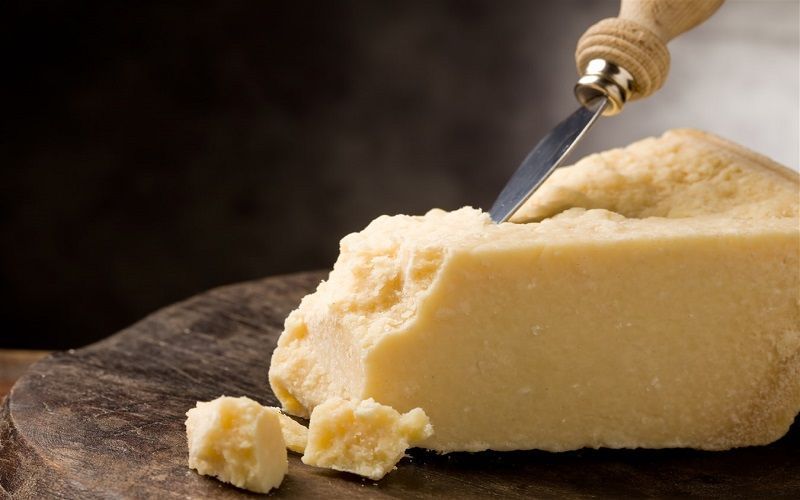Urgent Plea for Salt Reduction in British Cheese Industry Unveiled by Action on Salt Study
In a startling revelation, a recent study conducted by the NGO Action on Salt exposes the British cheese industry's failure to decrease salt levels in its products over the past decade. The investigation reveals that even a modest 30g serving of cheddar contains more salt than a packet of chips, with plant-based cheeses exhibiting even higher salt content.

Sonia Pombo, a registered nutritionist and campaign lead at Action on Salt, emphasizes the health risks associated with excessive salt consumption, including elevated blood pressure—a major risk factor for strokes and cardiovascular disease.
Despite the current maximum salt target for hard-pressed cheese being 1.9g per 100g, Pombo suggests a reasonable 5% reduction, advocating for mandatory targets to ensure all companies work toward the same goal and create a level playing field.
Variations in Salt Content
The research, carried out by an Action on Salt expert group based at the Queen Mary University of London, evaluated the salt content of over 600 cheddar and similar cheeses available at ten different retailers. While the average salt content of all hard-pressed cheese is 1.72g per 100g, there is a six-fold difference, ranging from 0.51g to 3.16g per 100g. Notably, retailers' own brand products generally exhibit lower salt content on average compared to manufacturers.
In comparing cheese products surveyed in both 2012 and 2023, only 15% achieved a reduction in salt content (greater than 5%), while 65% saw no change, and 20% increased in salt.
Cheddar Cheese in the UK: A Call for Reduction
Cheddar, being the most popular cheese category in the UK with over 400 different products, shows variations in salt content across different businesses. Morrisons stands out, producing cheddar cheese approximately 8% lower in salt compared to many other companies, highlighting the feasibility of salt reduction.
Pombo also highlights positive examples of cheese products successfully reducing salt content, such as Iceland's Wensleydale and Cranberry, showing a remarkable 46% reduction from 1.3g to 0.7g per 100g. However, plant-based alternatives, often associated with health benefits, were found to be higher in both salt and saturated fat compared to standard cheddar, challenging the perceived health halo.
Addressing health concerns related to high salt consumption, Pombo emphasizes that lowering salt intake can reduce blood pressure across various demographics, contributing to improved population health outcomes.
Call to Action and Global Implications
In response to these findings, Action on Salt urges the UK government to take regulatory action on salt content in cheese. Despite the government's publication of voluntary salt reduction targets for various food categories, the study reveals limited progress in reducing salt in hard-pressed cheese.
The WHO recognizes salt reduction as a global imperative, urging all nations to implement mandatory salt reduction policies. Plant-based cheeses, according to the study, have the highest salt levels among all categories, averaging 1.91g per 100g, nearly 10% saltier than cheddar. The study concludes that reducing salt in packaged foods could save lives and prevent heart disease diagnoses, underlining the critical need for immediate action.
Despite the current maximum salt target for hard-pressed cheese being 1.9g per 100g, Pombo suggests a reasonable 5% reduction, advocating for mandatory targets to ensure all companies work toward the same goal and create a level playing field.
Variations in Salt Content
The research, carried out by an Action on Salt expert group based at the Queen Mary University of London, evaluated the salt content of over 600 cheddar and similar cheeses available at ten different retailers. While the average salt content of all hard-pressed cheese is 1.72g per 100g, there is a six-fold difference, ranging from 0.51g to 3.16g per 100g. Notably, retailers' own brand products generally exhibit lower salt content on average compared to manufacturers.
In comparing cheese products surveyed in both 2012 and 2023, only 15% achieved a reduction in salt content (greater than 5%), while 65% saw no change, and 20% increased in salt.
Cheddar Cheese in the UK: A Call for Reduction
Cheddar, being the most popular cheese category in the UK with over 400 different products, shows variations in salt content across different businesses. Morrisons stands out, producing cheddar cheese approximately 8% lower in salt compared to many other companies, highlighting the feasibility of salt reduction.
Pombo also highlights positive examples of cheese products successfully reducing salt content, such as Iceland's Wensleydale and Cranberry, showing a remarkable 46% reduction from 1.3g to 0.7g per 100g. However, plant-based alternatives, often associated with health benefits, were found to be higher in both salt and saturated fat compared to standard cheddar, challenging the perceived health halo.
Addressing health concerns related to high salt consumption, Pombo emphasizes that lowering salt intake can reduce blood pressure across various demographics, contributing to improved population health outcomes.
Call to Action and Global Implications
In response to these findings, Action on Salt urges the UK government to take regulatory action on salt content in cheese. Despite the government's publication of voluntary salt reduction targets for various food categories, the study reveals limited progress in reducing salt in hard-pressed cheese.
The WHO recognizes salt reduction as a global imperative, urging all nations to implement mandatory salt reduction policies. Plant-based cheeses, according to the study, have the highest salt levels among all categories, averaging 1.91g per 100g, nearly 10% saltier than cheddar. The study concludes that reducing salt in packaged foods could save lives and prevent heart disease diagnoses, underlining the critical need for immediate action.
Key News of the Week











